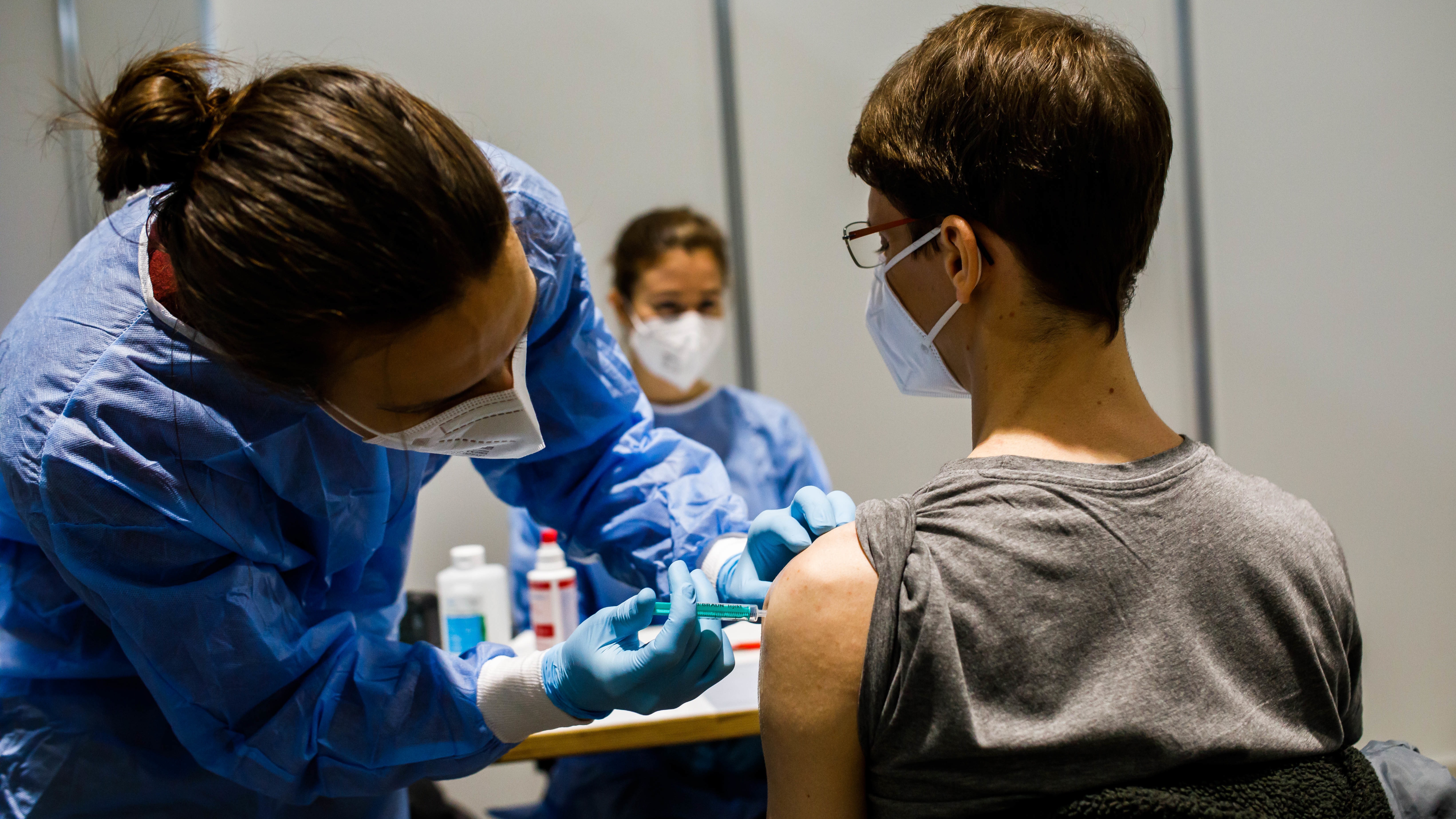Exclusive: ITV News reveals the extent of UK anti-vax social media following

Millions of people in the UK follow anti-vaccination misinformation content online, ITV News can reveal.
Exclusive research, carried out by the Center for Countering Digital Hate (CCDH), estimates there are 5.35 million UK followers of anti-vaccination accounts across social media.
Since a government pledge earlier this year to tackle the issue, only one of 27 major UK anti-vaccination accounts has been removed.
It comes as the UK begins rolling out of the Pfizer/BioNTech vaccine, leading many to call for the government to increase efforts to counter online falsehoods about the safety of vaccines.
When asked by ITV News if the government was doing enough, the former head of the Government Communications Headquarters (GCHQ), Sir David Omand, said: “ I think I would have to say probably no – and the volume control needs to be turned up”.
Sir David, the author of How Spies Think: Ten Lessons in Intelligence, encouraged the Government to put medical professionals at the front of the campaign against vaccine misinformation.
He said: “public health professionals…are the people, not government ministers, to address this. After all, in the end, if anti-vaxxers don’t get vaccinated then it will make life for everyone else more hazardous.”
A spokesperson for the Department for Digital, Culture, Media and Sport said: “We have set clear expectations of tech firms that they must play their part and act quickly to tackle mis- and disinformation on their platforms, and we will hold them to account for this.”
Last month, the government agreed to a new pledge with tech firms to counter anti-vaccination misinformation online.
They committed that no users or companies could profit from falsehoods shared about Covid-19 and promised there would be a “timely response” to content flagged by the government.
However, ITV News’ exclusive figures show millions of British people are still able to access false and misleading information about vaccines.
The head of the CCDH, Imran Ahmed, said: “It’s really worrying to see how many people there are, who are engaged with misinformation online and social media.
“Part of the reason is that social media has given these liars unprecedented reach and ability to speak to people they would never have been able to give access to before.”
Previous research by the CCDH found that only 4.9% of the coronavirus misinformation it flagged to social media firms was acted upon by the platforms.
Ahmed believes tech firms should do more to counter the spread of misinformation on their platforms. He said: “We’ve all heard lots of fine words from the social media companies who tell us that they’re doing their utmost to stop misinformation about vaccines on their platforms.
“The problem is…they still have not taken action against the worst polluters of our information ecosystem. The people who are pumping lies into people’s minds – they’re still being given free access”.
Some have taken the fight against misinformation into their own hands. A group of volunteers from the scientific community, collaborating as part a group called Team Halo, use video-sharing app TikTok to educate users about the vaccine.
One of the scientists involved in the project, Dr Anna Blakney, told ITV News: “instead of thinking about it as pro-vax versus anti-vax, I think the majority of people fall into a grey area in between where they have questions about it, but nobody to answer those questions.”
She added: “Scientists have taken all this time making vaccines but there is no point in making a vaccine if nobody is going to take it. It is kind of our duty to educate the public on what exactly these vaccines are and reassure them that we have gone about this in a really safe way.”
How social media firms responded to ITV’s exclusive report
Social media companies have different approaches to anti-vaccine misinformation. Facebook recently announced it would remove false claims about Covid-19 vaccines that have been debunked by public health experts from Instagram and Facebook.
Since 2018, Twitter has directed users who search for terms associated with vaccines to credible public health resources. According to the company, they have removed around 20,000 tweets since introducing Covid-19 guidance in March.
In October, YouTube pledged to delete misleading claims about coronavirus vaccines, which contradicted expert consensus.
A Facebook company spokesperson said: “Since 2018, we have had a policy to remove harmful misinformation that could contribute to physical harm, and we recently expanded this to apply to false claims about the Covid-19 vaccines now rolling out around the world.
“Between March and October, we removed more than 12 million pieces of harmful misinformation on Facebook and Instagram, and connected over 2 billion people to reliable information from health authorities such as the NHS and World Health Organisation.”
According to Twitter: “At Twitter, we recognise the role the service plays in disseminating credible public health information. We think it’s important to help people find the conversation they need that enhances their health and well-being. We’re still working through our policy and product plans. As with all of our rules and updates, we’ll strive to do this work in public.”
“We’re committed to protecting the health of the public conversation on Twitter — ensuring individuals can find information from authoritative sources is a key part of that mission.”
“We already ensure that advertising content does not contain misleading claims about the cure, treatment, diagnosis or prevention of certain diseases and conditions, including vaccines.”
Source

